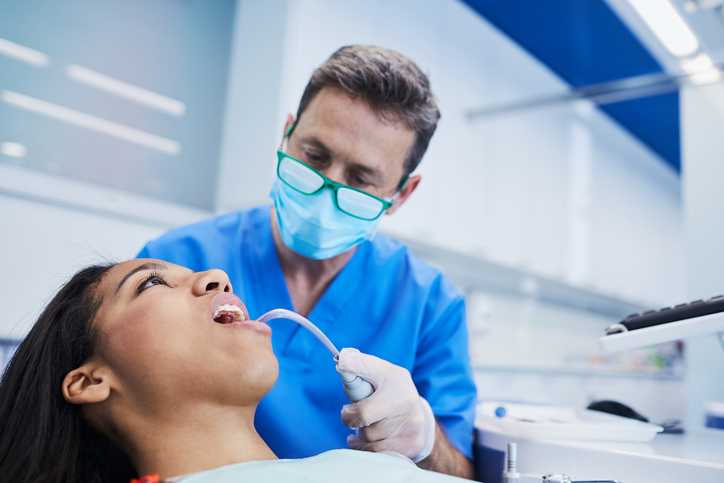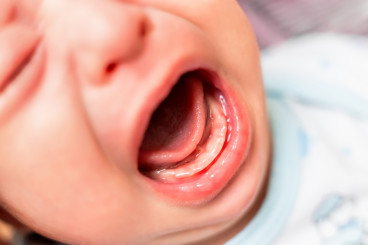The Science of Saliva: Why It's Critical for Oral Health
Did you know that saliva is your mouth's most powerful defender? From neutralizing harmful acids to rebuilding tooth enamel, this remarkable fluid performs countless vital functions. Learn how proper salivary function prevents disease, aids digestion, and why modern medicine increasingly uses saliva as a powerful diagnostic tool.

Saliva is often taken for granted, yet this remarkable fluid plays a vital role in maintaining oral health and overall well-being. While most people rarely think about their saliva unless there's a problem, this complex biological fluid is constantly working to protect and maintain oral health through various sophisticated mechanisms.
The Complex Chemistry of Saliva
At its core, saliva is primarily composed of water - about 99% - but that remaining 1% contains a powerful mixture of proteins, enzymes, electrolytes, and other compounds that perform crucial functions in the mouth. These components work together in a delicate balance to protect teeth, aid digestion, and maintain oral health.
The proteins in saliva, particularly mucins, create a protective coating over teeth and soft tissues. This natural barrier shields the mouth from mechanical wear, thermal shock, and chemical irritants. Without this protective layer, simple actions like speaking or eating would become uncomfortable, and teeth would be more vulnerable to decay.
The Natural Cleansing System
One of saliva's most important functions is its ability to clean and neutralize the oral environment. The continuous flow of saliva helps wash away food particles, dead cells, and harmful bacteria, preventing them from accumulating and causing damage. Moreover, it neutralizes acids produced by bacteria and acidic foods, maintaining a healthy pH balance in the mouth. This neutralizing effect is crucial because acidic environments promote tooth decay and erosion.
Saliva also contains various antimicrobial agents, such as histatins and defensins, which actively combat pathogens in the mouth. These agents help to disrupt bacterial cell membranes and inhibit their growth, further protecting against infections and diseases.
Additionally, saliva plays a role in maintaining the oral microbiome, which is the community of microorganisms that naturally reside in the mouth. By supporting a balanced microbiome, saliva helps to prevent the overgrowth of harmful bacteria that can lead to conditions like gingivitis and periodontitis.
Furthermore, saliva aids in the mechanical cleansing of the mouth during eating and speaking. The physical action of saliva flow helps to dislodge debris and plaque from teeth and gums, complementing the chemical cleansing processes.
Regular hydration is essential for maintaining optimal saliva production and effectiveness. Dehydration can reduce saliva flow, compromising its cleansing abilities and leading to oral health issues. Therefore, staying hydrated is a simple yet effective way to support saliva's natural cleansing functions.
Rebuilding Tooth Enamel: The Remineralization Process
The remineralization process facilitated by saliva is particularly fascinating. When teeth are exposed to acids, whether from foods or bacterial metabolism, the enamel can begin to demineralize, leading to a loss of essential minerals. Saliva contains calcium and phosphate ions that naturally rebuild tooth enamel through a process called remineralization. This ongoing cycle of demineralization and remineralization helps maintain strong, healthy teeth.
Saliva's ability to promote remineralization is enhanced by the presence of fluoride, which can be found in many dental products and drinking water. Fluoride strengthens the enamel by integrating into its structure, making it more resistant to acid attacks. This added protection helps to prevent cavities and maintain overall tooth integrity.
Diet plays a significant role in supporting the remineralization process. Foods rich in calcium, such as dairy products, leafy greens, and fortified plant-based milks, provide the necessary building blocks for enamel repair. Additionally, foods that stimulate saliva production, like fibrous fruits and vegetables, can aid in the remineralization process by increasing the availability of calcium and phosphate ions in the mouth.
Proper oral hygiene practices, including regular brushing and flossing, are crucial for promoting remineralization. These habits help to remove plaque and bacteria that can contribute to demineralization, allowing saliva to effectively repair and strengthen tooth enamel.
Moreover, maintaining a balanced pH in the mouth is essential for remineralization. Acidic conditions inhibit the process, while a neutral or slightly alkaline environment favors it. Rinsing with water after consuming acidic foods or beverages can help to restore a healthy pH balance and support remineralization.
The First Step in Digestion
Digestion actually begins in the mouth, thanks to salivary amylase, an enzyme that starts breaking down carbohydrates before food even reaches the stomach. This initial digestive process not only aids in nutrition but also helps us properly taste our food. The interaction between saliva and food particles enables our taste buds to function effectively, contributing to our enjoyment of meals.
The antimicrobial properties of saliva are equally impressive. Components like lysozyme, lactoferrin, peroxidase, and immunoglobulins help control bacterial growth, preventing infections and maintaining a healthy oral microbiome. This natural defense system works continuously to protect against harmful microorganisms that could otherwise cause disease.
Understanding Dry Mouth: When Saliva Production Fails
However, when salivary flow is reduced, serious oral health problems can develop. This condition, known as dry mouth or xerostomia, can be caused by various factors including medications, medical conditions, and lifestyle choices. Common medications that can reduce saliva production include antidepressants, antihistamines, blood pressure medications, and decongestants.
The Impact of Insufficient Saliva
The consequences of dry mouth extend beyond mere discomfort. Without adequate saliva, individuals face an increased risk of tooth decay, greater susceptibility to oral infections, difficulty speaking and swallowing, altered taste perception, and persistent bad breath. These problems can significantly impact quality of life and overall health.
The Future of Oral Health: Salivary Diagnostics
Modern science has also recognized saliva's potential as a diagnostic fluid. Salivary diagnostics is an emerging field that offers promising opportunities for non-invasive disease detection and monitoring. Through saliva testing, healthcare providers can screen for various conditions, monitor hormone levels, and even track therapeutic drug levels. This advancement in diagnostic capability represents a significant step forward in preventive healthcare.
Maintaining Optimal Salivary Health
Maintaining healthy salivary function requires a comprehensive approach. A balanced diet, adequate hydration, and proper oral hygiene practices are fundamental. Regular dental check-ups allow professionals to monitor salivary function and address any issues before they become severe problems. For those experiencing dry mouth, various solutions are available, from simple lifestyle changes to medical interventions.
The importance of saliva varies across different age groups. Children typically have higher salivary flow rates, which is crucial for dental development and speech formation. Adults maintain steady flow rates but may experience changes due to stress or hormonal influences. Elderly individuals often face reduced flow rates and increased dry mouth risk, particularly due to medication use.
Research in salivary science continues to advance, with current studies focusing on improving artificial saliva products, developing novel diagnostic techniques, and identifying new salivary biomarkers. These developments promise to enhance our understanding of oral health and lead to more effective treatments for saliva-related conditions.
Recognizing Warning Signs
Understanding the warning signs of salivary dysfunction is crucial. Persistent dry mouth, difficulty swallowing, burning sensations in the mouth, changed taste perception, or an increase in cavities should prompt a professional evaluation. Regular dental check-ups remain essential for monitoring salivary function and maintaining optimal oral health.
The Economic Benefits of Prevention
The economic impact of maintaining good oral health through proper salivary function cannot be overstated. Preventive care and early intervention are consistently more cost-effective than treating advanced dental problems. By understanding and maintaining healthy salivary function, individuals can avoid more expensive dental procedures in the future.
Looking to maintain optimal oral health without breaking the bank? Visit Dr. BestPrice Dental Auction Site for incredible savings on dental procedures. Our innovative dental auction platform connects you with quality dental care at competitive prices. Start bidding on dental treatments today and discover a new way to access affordable dental care. Your smile deserves the best care at the best price!



